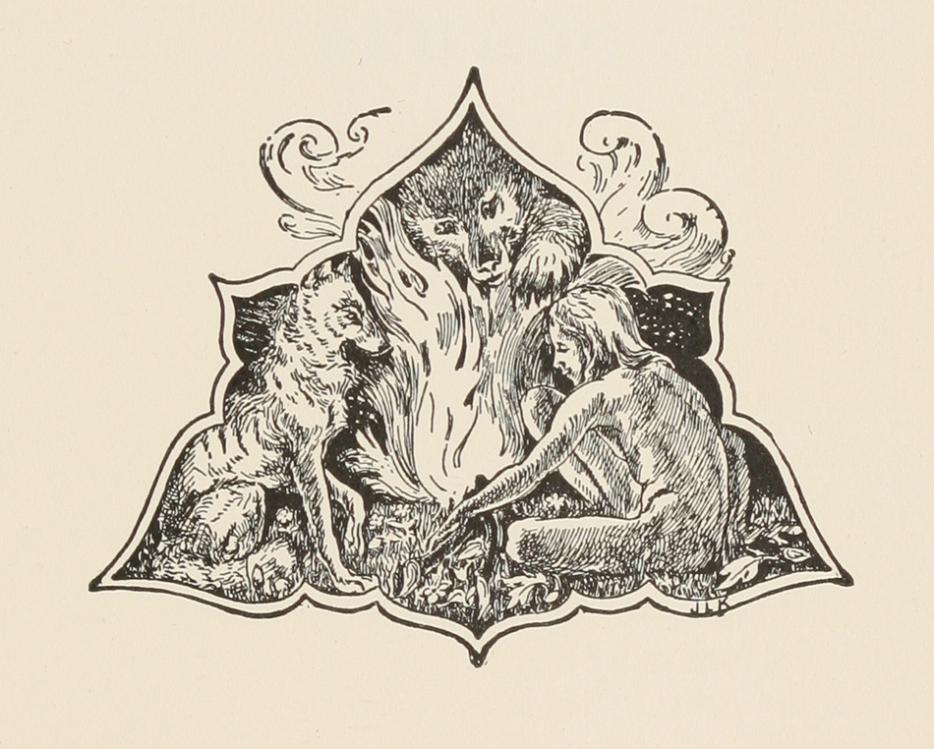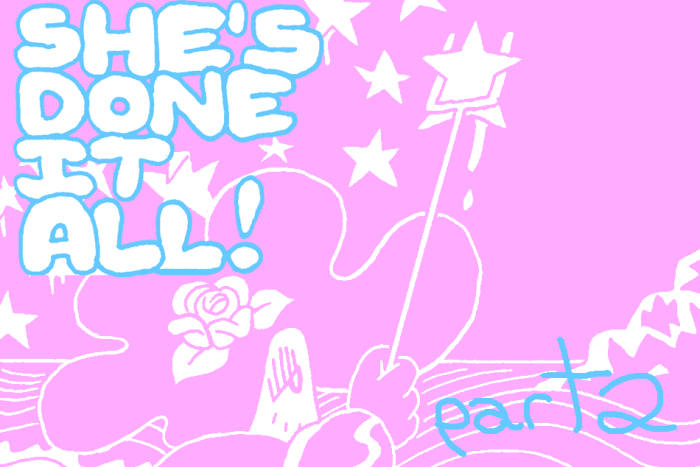About halfway through Disney's remake of its own 1967 adaptation of Rudyard Kipling's The Jungle Book, Kaa, the enormous rock python voiced with seductive sibilance by Scarlett Johansson, lulls our hero, Mowgli, into a kind of punch-drunk hypnosis in which he sees how he came to be the lone man-cub in the jungle. His father is mauled to death by the imperious tiger, Shere Khan, thus sending Mowgli spiraling into orphanhood, which simultaneously leaves him both impossibly vulnerable and utterly accessible to all the wolves, panthers, sloth bears, and Edenic serpents the titular jungle has to offer. But today, in 2016, one could be forgiven for hardly even registering the backstory on which The Jungle Book's entire premise depends. Mowgli is, after all, just one in an inexhaustible cavalcade of fictional orphans, joined in the Disney universe by the eponymous protagonists in Cinderella, Snow White, Aladdin, and Peter Pan, who left his parents and escaped to the literary and cinematic apotheosis of high fantasy orphanhood, Neverland. What should have added some heartrending background texture to The Jungle Book remake is instead taken for granted, a tacitly accepted feature of our precocious hero.
It's become fairly common practice to attribute all of this parental absence and death in Disney films to Walt Disney's own "mommy issues," which do in fact stem from an actual incident in the mogul's life: shortly after buying his parents a new home in 1938, Walt's mother died from asphyxiation caused by a leaky furnace. He had just released his first animated feature, Snow White and the Seven Dwarfs, the previous year, and in the ensuing decades after his mother’s death he would go on to make Pinocchio, Bambi, Cinderella, Peter Pan, and The Jungle Book, all of which featured motherless protagonists. It's a tragic backstory, but the storytelling trope of the orphaned hero did not begin with the trauma of the man who voiced Mickey Mouse—after all, he lifted his orphan stories from works that predated his birth by many decades. And what are we to make of Harry Potter, Frodo Baggins, Luke Skywalker, desert scavenger Rey from The Force Awakens? Forsaken youths, with their hard-won tenacity, fierce consciences, and colossal plights, descend from a much larger and more consequential tradition than the lucrative business of fairy tale adaptation. The art of the story itself hinges on orphans, and without them perhaps our most beloved storytelling medium, the novel, might never have been conceived.
*
Largely considered to be one of the first novels ever written in English, Henry Fielding's Tom Jones centers around the auspicious orphanage of the title character, whose derelict parents leave him in the bed of the respected gentleman Mr. Allworthy. Daniel Defoe's Moll Flanders, published in 1722 and also a strong claimant to the first novel throne, likewise begins with the abandonment of an infant. Moll's mother is a convict at London's Newgate Prison who "pleads the belly" to stay her execution. She is eventually sent away to America, while Moll lives with a foster family in England. It's no coincidence that two of the very earliest novels doubled as orphan bildungsroman, featuring characters born of both humility and squalor who must make their own way in the world without the support of financial means or family lineage. Unlike its most direct predecessor, stage plays, which rely on the tension between characters created by class, power, marriage, and other social forces, from the outset the novel aspired to huddle down into a single perspective, exclusively focusing on an individual’s vantage of the world. Moll Flanders and Tom Jones are flawed, lawless, and sexually promiscuous; having grown up without their biological parents, and thus lacking the guidance and ballast a role model provides, they're forced to feel out the balance between pragmatism and morality on their own. This was the novel's original raison d’être: a quest for moral discovery wrapped in a coming-of-age story. And there was no individual better suited to carry this double-burden than the orphan: essentially living without a safety net, the orphan is never shielded from the callousness and stark motives of those around her, and her own decisions often carry dire consequences placid children with stable nuclear families wouldn't dare fathom.
Oliver Twist, that iconic street urchin hailing from the archetypal Dickensian childhood, is another exhibit in how these parentless waifs shaped the novel. Like Mowgli, Oliver is thrown into a jungle full of nefarious beasts with hidden agendas. His absolute vulnerability, his lack of a safety net, exposes him to the seediest corners of London, from tyrannical workhouses to barbarous chimney sweeps to Fagin and his empire of child exploitation. This complete exposure is what makes Dickens's novels work so well as not only sweeping social critiques but also taut story arcs: Oliver has a lifetime of ragged, picaresque misfortune in just a few years, his youth essentially a supercharged bildungsroman. As literature scholar John Mullan put it, the orphan is "an essentially novelistic character, set loose from established conventions to face a world of endless possibilities (and dangers)." The fledgling novel form, born out of the desire to chronicle the individual's trials and self-discovery, found in the orphan the perfect expression of purity, solitude, and moral freedom. Moll Flanders, Tom Jones, Oliver Twist, Jude Fawley, Cosette and Valjean: largely uncompromised by the (good or ill) influence of nature or nurture, these characters were the perfect literary experiments for their authors, chances to illuminate the meatiest parts of human experience in hyper-condensed form. The orphan was the embodiment of all the novel's aspirational virtue, the way it wanted to see itself.
It is as though the scale of their tragedy and woe in their early years must be directly proportionate to the prodigiousness of the destiny that awaits them.
People are drawn to these characters because they appear to exist utterly outside the camouflage of conformity. They are open and exposed, raw nerves incapable of concealing themselves from anguish or vicissitude. In this sense the orphan is emblematic of something absolutely critical that the novel strives to achieve—a certain independence of spirit, a purer moral state unencumbered by the prejudices, myopia, and spiritual torpor of class or privilege. Nowhere is this combination on greater display than in Charlotte Brontë’s fierce and tortured soul, Jane Eyre. The orphan-cum-governess who endures an onslaught of hardship yet staunchly refuses to concede her dignity, for her a holy and inviolable thing, Jane established the immortal figure of the strong-willed, independent-minded young woman who follows her own internal compass, even when its true north leads her to the brink of ruin.
As Mullan wrote, "Brontë's extraordinary explorations of female self-consciousness, featuring heroines who sometimes shocked contemporaries with their defiance and self-reliance, required her to orphan those heroines." In order to fully sever Jane's ties from the ideologies and social mores of the society around her, Brontë made her an orphan. It was a calculated narrative decision, a way to make Jane's radical free will and strident, self-sacrificing independence plausible. If Moll Flanders's and Tom Jones's orphanhood is used to hurl them into the outside world without safeguard, then Jane's deepens her inner turmoil, and expands the possibilities of a consciousness wrestling with its principles and desires. After famously breaking the fourth wall to announce her marriage, all that was left for the novel was its canonization and accompanying pageantry: Brontë's classic has inspired countless film and television adaptations, high- and lowbrow spinoffs (including Jean Rhys's Wide Sargasso Sea, a classic in its own right), and a collection of fan fiction written by celebrated novelists. The proto-feminist governess is arguably the most beloved female character of the past two centuries, and that she is an orphan is hardly incidental.
*
The 300-year-old experiment of the novel is inextricably bound to its chief hero and instrument, the scrappy youth with nothing and no one to fall back on. For the novel, the orphan is the skeleton key to narrative tension, reader empathy, and moral awakening. Their plights—on filthy London streets, brooding gray moors, macabre "orphan asylums"—are revved-up story engines, for wherever they are, they desperately need to escape. From these novels it was not a very long leap to the cinematic worlds of fantasy epics and adventure sagas. After all, Frodo Baggins and Harry Potter began their lives as literary characters, and George Lucas drew heavily from Joseph Campbell's Hero with a Thousand Faces when conceiving his orphaned hero Luke Skywalker. Disney likewise heeded the call, killing off heroines' parents with a near-psychopathic voraciousness, in part because, as Disney producer Don Hahn said in an interview in 2014, "it's story shorthand." The loss of one or both parents forces protagonists to grow up quickly, accept responsibility, transform themselves. In these films there's simply no time for ennui or wanton adolescence; for the orphan survival and its concomitant responsibilities come first, and so the story whips off into action.
But is that it? Do the Oliver Twists, Mary Lennoxes, Cinderellas, and wizarding prodigies of the (fictional) world merely exist as spring-loaded plot mechanisms? Last year Alison Kinney observed in her excellent essay for The New Inquiry that the literary orphan "belongs to no world except that of narrative opportunity." These protagonists, so many of which are now at the center of cinematic worlds, whether a quixotic jungle or a desert planet or morose, nocturnal Gotham, all fit snugly into a specific arc. Wrenched from their parents at birth, they are first consigned to an arduous youth and later destined for extraordinary heroism and glory. It is as though the scale of their tragedy and woe in their early years must be directly proportionate to the prodigiousness of the destiny that awaits them. It is this reversal of fortune that ascends to greater heights of fantasy than all the hippogriffs, orcs, and fairy godmothers these stories' authors can dream up.
But isn't there some degree of exploitation in this timeworn archetype? Are fantasy authors, graphic novelists, and screenwriters not, in some way, distorting the real, harsh plights of children who must navigate the world without parents? With heroes and heroines whose parents are killed, estranged, or otherwise absent coming out of comic books, fantasy sagas, and various forms of literary adaptation, we've reached a point where we are obscuring, even suffocating, the reality beneath these fictions. It reminds me of something I once read about how, when the novel first became a musical sensation in the 1980s, Parisians would step over the homeless on their way to Les Misérables. Art has always been drawn to tragedy and the possibilities of transforming it, but it also creates a safe, ultra-convenient space to feel sympathy with no strings attached, to achieve masturbatory catharsis. There can be a fine line between the artistic dictum to weave a chrysalis from tragedy and the low-hanging temptation to sympathetically other the ill-fated by endowing them with magical powers, and it's become increasingly blurred. Using orphanhood as a spring launcher into the pinball maze of story, where its mysteries and fallout can hit as many flippers as possible, may be more than just lazy narrative structure; it wanders perilously close to dehumanizing.
Hollywood franchises have appropriated this fantasy logic and painted it into a much larger canvas while also strapping gratuitous burdens on their orphan-heroes. This, too, hearkens back to literature. As Kinney mentions, literary orphans "serve as ambassadors between the outermost fringe of vulnerability, pathos, longing—and superhuman goodness and pluck—and the families and communities they'll transform." Fictional orphans always had the ability to change the world around them, whether it was by eliciting newfound sympathies, exposing cynicism and iniquity, or offering a kind of moral absolution to the complacent, flawed characters around them. It is this latter "magical power" that has helped the orphan-hero endure for so long, because it also extends to the audience. When we watch the hardscrabble Cosette escape the Thénardiers and mature into a beautiful, kind young woman, or Frodo ferry the corruptive ring to Mount Doom, or Mowgli return triumphant to his storybook jungle, we all feel purified, washed clean of our imperfect entitlements. This was surely not what novelists originally had in mind with their orphans, characters that were not conceived to let us off the hook but rather to make us see the world in sharper clarity, with all its subtle shades of moral consequence.






